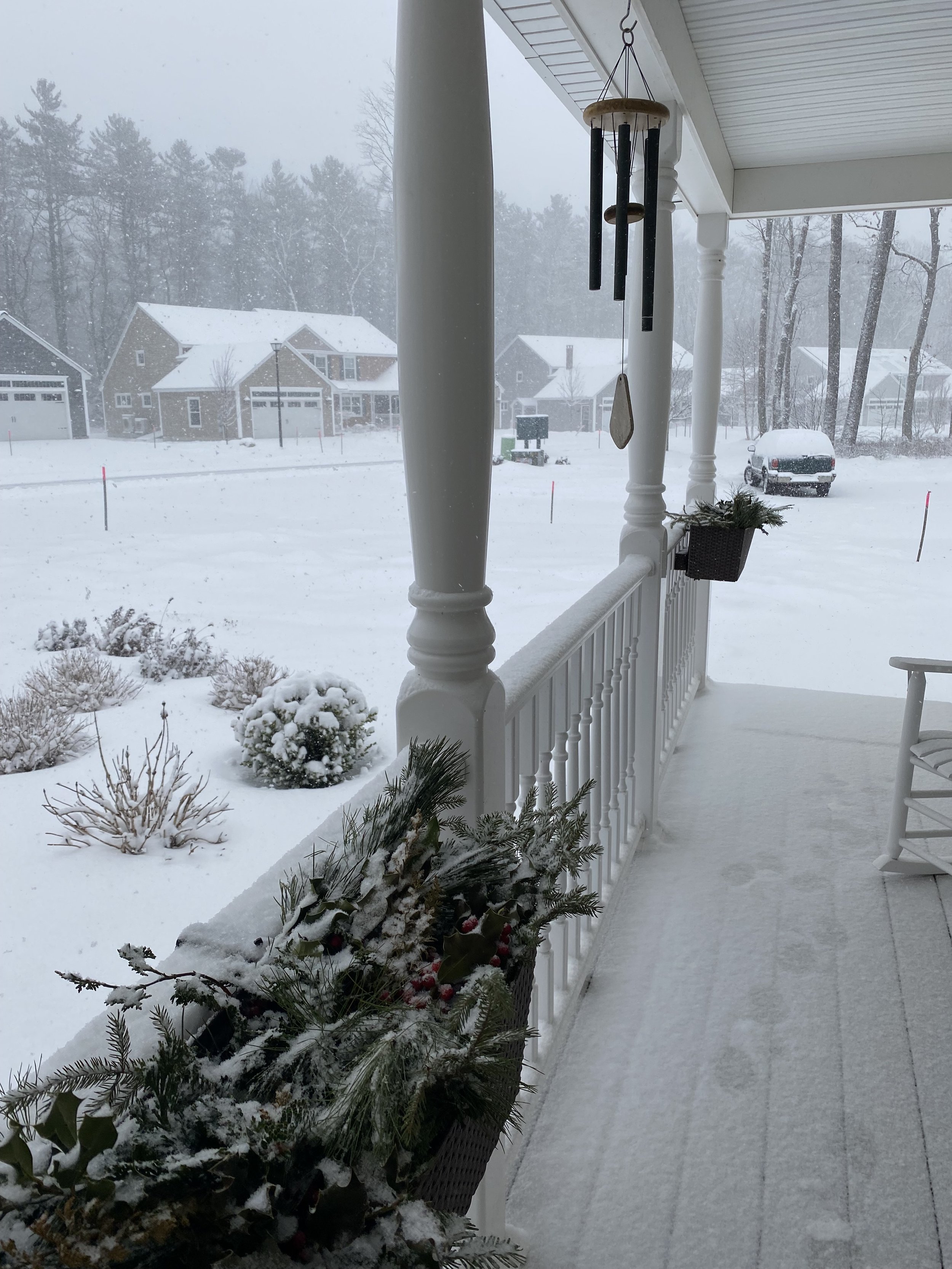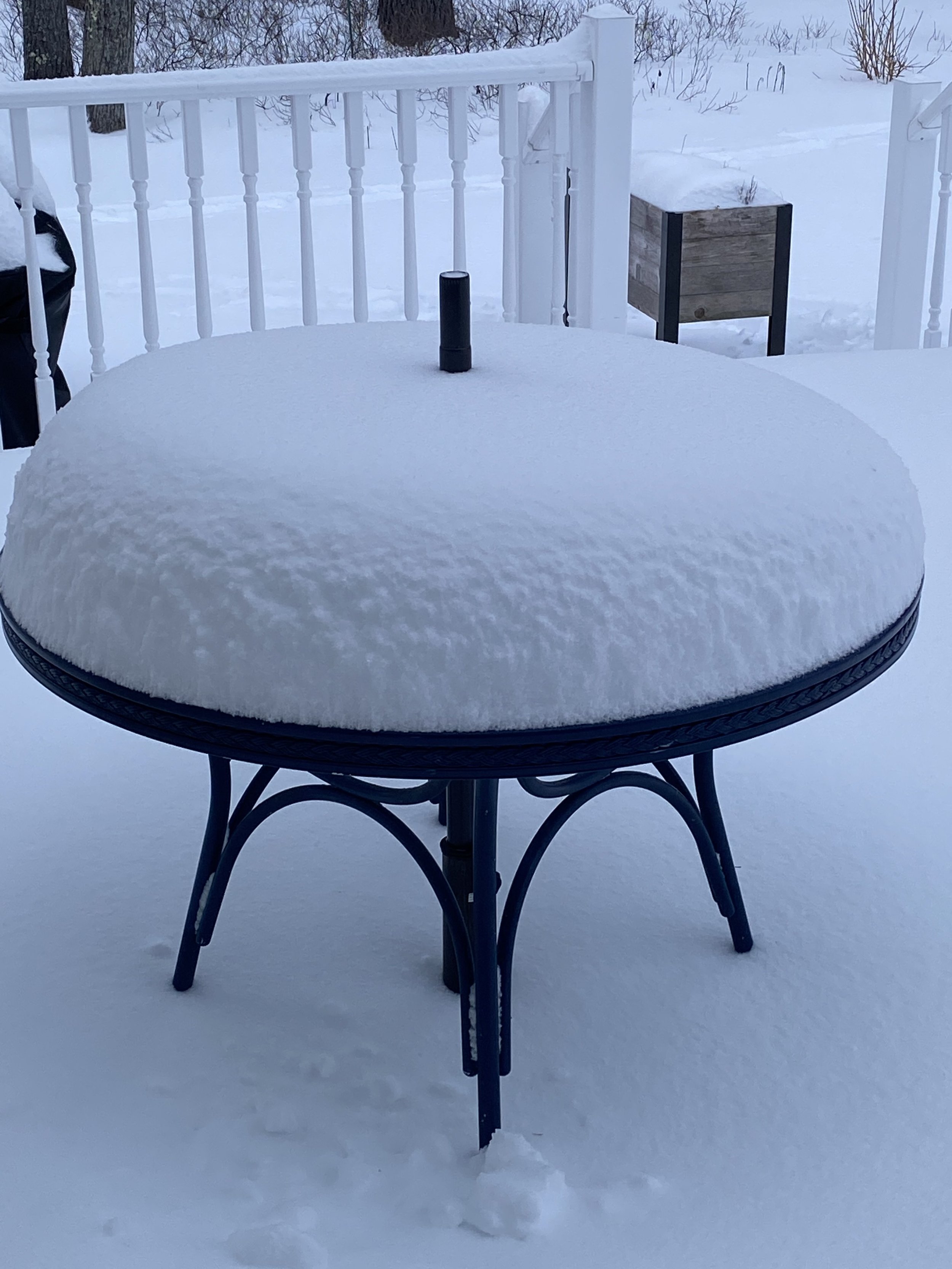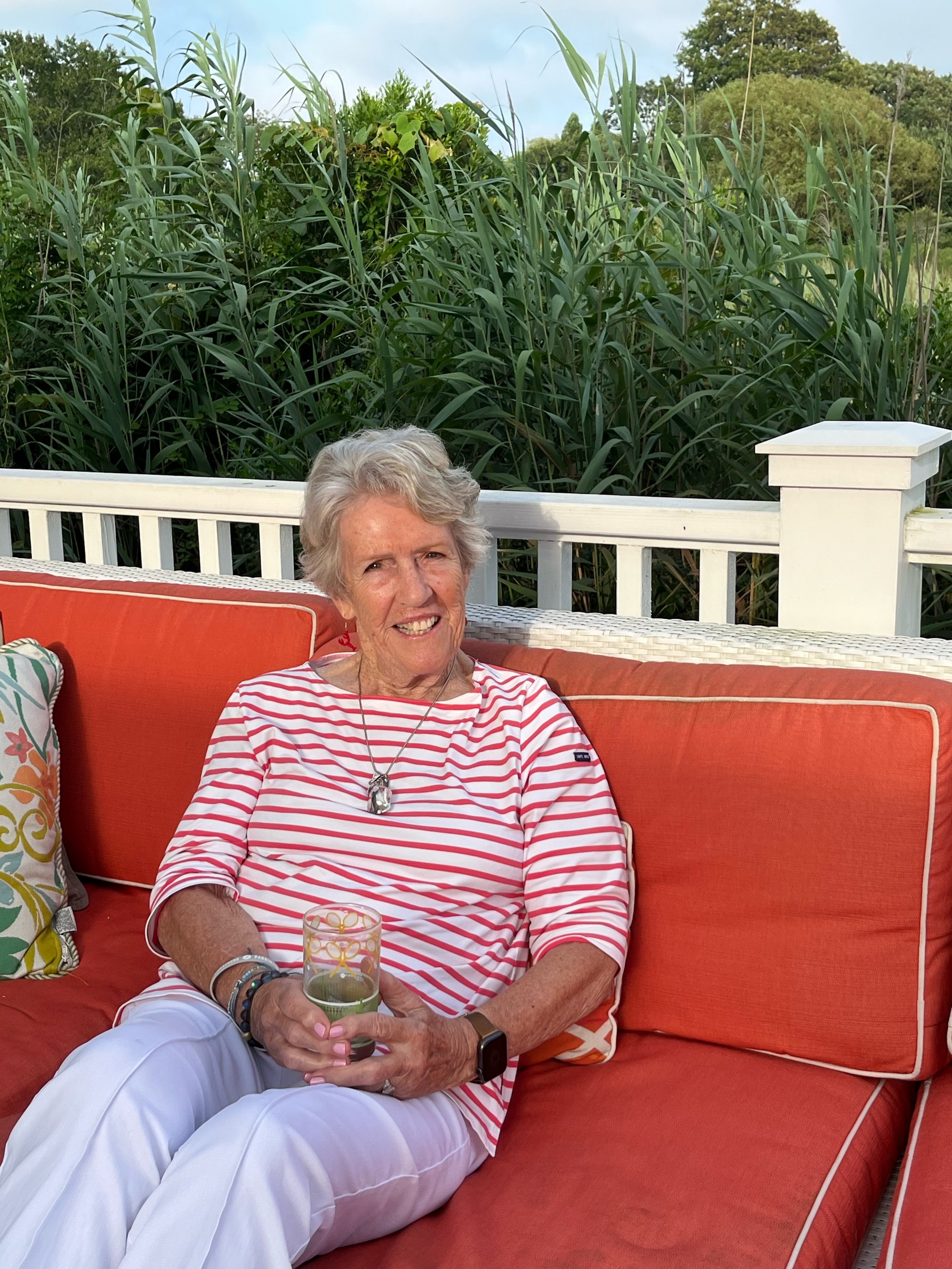WINTER WORDS
/On snowy days I prefer the words of poets to my own prose! Here are a few of my favorites.
SNOWY NIGHT
by Mary Oliver
Last night, an owl
in the blue dark
tossed an indeterminate number
of carefully shaped sounds into
the world, in which,
a quarter of a mile away, I happened
to be standing.
I couldn’t tell
which one it was –
the barred or the great-horned
ship of the air –
it was that distant. But, anyway,
aren’t there moments
that are better than knowing something,
and sweeter? Snow was falling,
so much like stars
filling the dark trees
that one could easily imagine
its reason for being was nothing more
than prettiness. I suppose
if this were someone else’s story
they would have insisted on knowing
whatever is knowable – would have hurried
over the fields
to name it – the owl, I mean.
But it’s mine, this poem of the night,
and I just stood there, listening and holding out
my hands to the soft glitter
falling through the air. I love this world,
but not for its answers.
And I wish good luck to the owl,
whatever its name –
and I wish great welcome to the snow,
whatever its severe and comfortless
and beautiful meaning.
STOPPING BY WOODS ON A SNOWY EVENING
by Robert Frost
Whose woods these are I think I know.
His house is in the village though;
He will not see me stopping here
To watch his woods fill up with snow.
My little horse must think it queer
To stop without a farmhouse near
Between the woods and frozen lake
The darkest evening of the year.
He gives his harness bells a shake
To ask if there is some mistake.
The only other sound’s the sweep
Of easy wind and downy flake.
The woods are lovely, dark and deep,
But I have promises to keep,
And miles to go before I sleep,
And miles to go before I sleep.
SNOW DAY
by Billy Collins
Today we woke up to a revolution of snow,
its white flag waving over everything,
the landscape vanished,
not a single mouse to punctuate the blankness,
and beyond these windows
the government buildings smothered,
schools and libraries buried, the post office lost
under the noiseless drift,
the paths of trains softly blocked,
the world fallen under this falling.
In a while, I will put on some boots
and step out like someone walking in water,
and the dog will porpoise through the drifts,
and I will shake a laden branch
sending a cold shower down on us both.
But for now I am a willing prisoner in this house,
a sympathizer with the anarchic cause of snow.
I will make a pot of tea
and listen to the plastic radio on the counter,
as glad as anyone to hear the news
that the Kiddie Corner School is closed,
the Ding-Dong School, closed.
the All Aboard Children’s School, closed,
the Hi-Ho Nursery School, closed,
along with—some will be delighted to hear—
the Toadstool School, the Little School,
Little Sparrows Nursery School,
Little Stars Pre-School, Peas-and-Carrots Day School
the Tom Thumb Child Center, all closed,
and—clap your hands—the Peanuts Play School.
So this is where the children hide all day,
These are the nests where they letter and draw,
where they put on their bright miniature jackets,
all darting and climbing and sliding,
all but the few girls whispering by the fence.
And now I am listening hard
in the grandiose silence of the snow,
trying to hear what those three girls are plotting,
what riot is afoot,
which small queen is about to be brought down.
SNOW
by Eliza Cook
Brave Winter and I shall ever agree,
Though a stern and frowning gaffer is he.
I like to hear him, with hail and rain,
Come tapping against the window pane;
I joy to see him come marching forth
Begirt with the icicle gems of the north;
But I like him best when he comes bedight
In his velvet robes of stainless white.
A cheer for the snow—the drifting snow!
Smoother and purer than beauty’s brow!
The creature of thought scarce likes to tread
On the delicate carpet so richly spread.
With feathery wreaths the forest is bound,
And the hills are with glittering diadems crown’d;
’Tis the fairest scene we can have below.
Sing, welcome, then, to the drifting snow!






